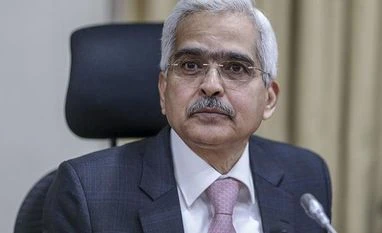The Monetary Policy Committee (MPC) has not compromised on its primary mandate of price stability by continuing with an accommodative stance, even as central banks in developed countries are on course to adopt a tighter monetary policy in view of high inflation, after a prolonged period of ultra-loose monetary policy, Reserve Bank of India (RBI) Governor Shaktikanta Das said on Friday.
“We have continued with our accommodative stance based on our own domestic growth-inflation dynamics, amidst the current divergence in policy actions of central banks across the world,” the RBI governor, who chairs the MPC, said while speaking at the National Defence College. “Thus, we have used the flexibility embedded in the flexible inflation targeting (FIT) framework and implemented our monetary policies, without compromising on our primary mandate of price stability.”
In the recently concluded meeting of India’s rate-setting body, the six-member committee voted to keep the benchmark policy rates unchanged and continued with its accommodative stance, against market expectations, given the uneven economic recovery and the projections showing inflation softening next year.
The continuation of the accommodative stance was, however, criticised by one of the MPC members, Jayanth Varma — a professor of the Indian Institute of Management-Ahmedabad. According to Varma, a neutral stance was long overdue.
“…the continued harping on combating the ill effects of the pandemic has become counter-productive and deflects the focus of the MPC away from the core issue of addressing the recessionary trends that go back at least to 2019,” said Varma during the MPC discussions, the minutes of the meeting showed. Varma has been the sole dissenter among the members, voting against the accommodative stance in the last four MPC meetings.
Pointing out the difference in policy measures taken by the RBI and other major central banks to tackle the risks posed by the Covid-19 pandemic, Das said the RBI had undertaken unconventional measures even before exhausting the conventional policy space.
The RBI has solely operated in the secondary market in facilitating the “evolution of the yield curve”, unlike some inflation-targeting emerging market economies’ central banks that made emergency provisions to operate in the primary market to finance the government directly, he said.
On the global scenario, Das said a number of economies, including the major ones, were facing multi-decadal high inflation due to supply disruptions, tighter labour markets, fragility of the just-in-time inventory management, and geopolitical disturbances. As a result, central banks are in a difficult position when it comes to their policy actions to mitigate the risks. If central banks act aggressively to contain inflation, which may subside as normalcy prevails, they may run the risk of setting in recession, he said. On other hand, if they act too little and too late, they may be blamed for “falling behind the curve” and may have to do a lot of catching up later, which will be detrimental to growth, he added.
Das also highlighted the importance of central bank communication, given its multifarious responsibilities and ramifications of its actions. At the same time, he reminded, “Communication is also a double-edged sword.”
He said as part of the monetary policy, the RBI has actively used communication through a variety of tools – the MPC resolutions and minutes, post-policy statements, press conferences, speeches, and our other publications, to anchor expectations.
“The raison d'être of our actions … was communicated through speeches, post-policy press conferences and media interactions,” Das added.
Unlock 30+ premium stories daily hand-picked by our editors, across devices on browser and app.
Pick your 5 favourite companies, get a daily email with all news updates on them.
Full access to our intuitive epaper - clip, save, share articles from any device; newspaper archives from 2006.
Preferential invites to Business Standard events.
Curated newsletters on markets, personal finance, policy & politics, start-ups, technology, and more.
)